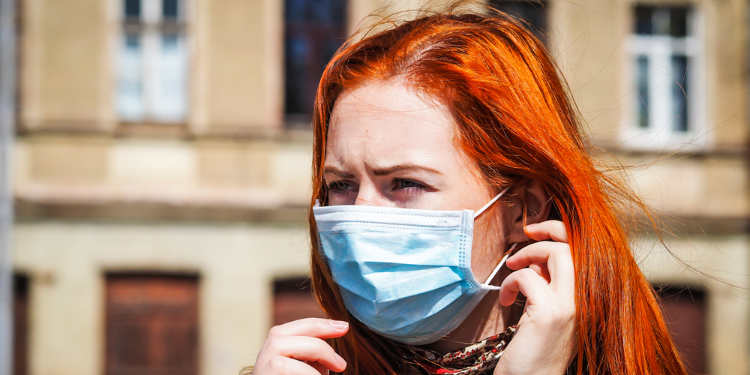
With more than 12 million infections and more than 300,000 deaths, and a second wave that seems to be accelerating, many European countries went back into lockdown in recent weeks. Some of these countries are France, the United Kingdom, Italy, Spain, as well as Greece. We have asked a few expats how they feel about the current lockdown.
According to Frank, who lives in Germany, this new lockdown isn't as strict as the first one, in the early days of the crisis. Schools, offices, shops, except restaurants and recreational spots, remain open. Regarding social life, meetings are now limited to two families maximum. "This time it's more a bother than a real difficulty (except of course for those who lost their job or business)."
Tom, an American expatriate in Stuttgart, to add that bars and cafes, cinemas, theatres, gyms, hair and nail salons, as well as events, are all closed. “Most university buildings have been closed since the early spring. They are trying to keep schools and nurseries open, but when a kid tests positive, then usually the whole class gets quarantined for up to 2 weeks. A number of kids over time and a whole school can be shut down."
Today in Germany, it is compulsory to wear a mask in most businesses and shops, as well as in public transport and bus stations. But Tom points out that wearing a mask is recommended, but not mandatory in the street, for example. "People should keep distance and avoid contact." According to Jean Luc, a French expat in Germany, many people are against the wearing of masks. “But I believe that the German authorities have taken the right decisions. Today, many German firms prefer remote work as far as possible. For those who can't, wearing a mask, hand sanitising, disinfection and ventilation of the work premises regularly, are required." In large industries, working hours have been modified to limit meetings between employees. Still, the number of new infections skyrocketed in recent weeks, with more than 738,000 positive cases in Germany to date.
Victoria, an Indonesian expat in France, is deeply disappointed by these new measures. “I am a professional musician, and all my concerts (which were just re-started after the first lockdown) were again cancelled. On the other hand, I could have more time doing stuff at home, and another renovation project that is ongoing at my studio." Victoria is the mom of a little girl who is still attending school normally. "I drive her every morning and pick up every afternoon, of course with an official letter from the school so I can show it to the police if they control me. So there is no problem with this matter." Victoria points out that her husband is still stranded abroad where he works. “I am in contact with my family in Indonesia and other countries in Europe. I still can meet 2 or 3 friends around the house, because we can go out for an hour per day for fresh air, but we can't do a group hang out."
Ben, for his part, is employed by a group that is part of the essential professions in France. “I have a professional certificate which allows me to move around. Still, I remain cautious as much as possible. As I have been elected in my municipality, I'm also authorised to travel around freely”. The only downside, for him, is the restriction on leisure activities, especially on weekends. “But let's say it's for everyone's good. Let's be realistic and welcome all the beautiful things in life with some gratitude. We shall overcome this with a positive attitude".
The UK also went back into lockdown, but overall, nothing has really changed over the past few months, according to Jeff, an American expatriate. “Honestly, for us, nothing much has changed except the requirement to wear masks pretty much everywhere, and they have closed all the pubs, clubs and restaurants unless they provide a takeaway service. Wearing a mask doesn't bother us and not being big pub-goers, it hasn't affected us at all." However, he believes that the reason the pandemic was spreading again was people were not obeying the social distancing rules. "Going to the pub, have a few drinks, being unable to keep their hands off each other - eh voila." While remote working is recommended where possible in the UK, most offices are open, just like schools. However, when COVID-19 cases are detected in schools, teachers and students are required to self-isolate and get a test done.
For Vincent, who recently relocated to Crete, the Greek government is more than careful. However, he highlights how Cretans take everything lightly. “Since they haven't had many cases here, some believe that COVID-19 is fake. I had to tell them that I knew people who had died of this disease so that they could pay me some kind attention”. However, Vincent believed that the lockdown in Crete isn't as strict as in other parts of Europe. “Non-essential businesses and cultural spaces are closed, but we have seen a lot of businesses open, including paint and carpet stores. It only takes a short text to get authorisation to go out”. Clearly, for Vincent, Greece is a better place to be than at the heart of the pandemic.




















Comments
1